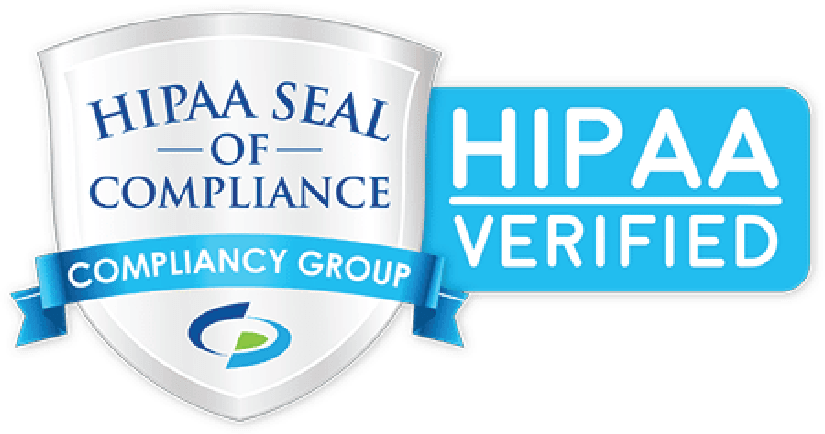Online security is something that should get everyone’s attention. Threats exist all around us: ransomware, viruses, spyware, social engineering attacks and more. There’s so much you need to know to keep your personal and business information safe.
As trusted cybersecurity professionals, we want to help you get educated and stay informed. That’s why during National Cybersecurity Awareness Month our goal is to give you all the information you need to stay secure.
How can we help?
We’ll be sharing valuable and timely information on cybersecurity in blogs, in our newsletter, and on all of your favorite social media sites.
What should you do?
You can also give us a call for personalized solutions by subscribing to our exclusive mailing list.
Being cybersecurity aware means that you understand what the threats are and take precautions to prevent them.
Here are some important reminders:
- Never give out your password. Don’t share it over the phone either. You never know who’s listening.
- Don’t click on links that are sent to you via unsolicited emails or from someone you don’t know.
- Use complex passwords that are difficult to guess and use different ones for different programs and computer devices.
- Don’t reveal your personal, business or financial information in emails.
- Don’t respond to email solicitations.
- Keep software, browsers and operating systems up to date, so they stay free of vulnerabilities.
- Encrypt your files to ensure unauthorized people can’t access them.
- Be careful when using public Wi-Fi networks – don’t conduct sensitive activities like banking or shopping with credit cards on public Wi-Fi.
- Remember your physical surroundings and don’t leave your computer devices unattended in public or easy-to-access areas.
- Only use websites that begin with “https://” when visiting online shopping, banking or other sites where you will be entering your private information.
- Keep your online presence private. Don’t publish your email address online in social network sites.
What else should you watch out for?
Malicious Emails – These typically come in the form of a request from a trustworthy organization like a financial institution.
The email may urge you to act quickly, saying that your account has been compromised or a request can’t be fulfilled. The purpose of the email is to get you to provide confidential information to rob you of your money or identity credentials.
Take precautions and contact the company directly to see if the email is legitimate.
When you search for the company, don’t use any information in the message. Perform your own search online.
Ransomware – This is a type of malware that accesses your files and locks (encrypts) then demands payment to unlock them.
It’s not suggested that you pay the ransom as this is not a guarantee that you’ll get your files back.
Hopefully, you have a secure, offsite copy of all your files so you can recover your data.
Viruses – These are harmful computer programs that can be transmitted from device to device.
Viruses operate in different ways but they are all designed to create havoc, and some provide criminals access to data on infected devices.
If your computer acts irregularly, report this to your supervisor right away. This could be caused by a virus.
Spyware – Spyware downloads onto your devices without your permission when you visit an unsafe website or click on a malicious attachment.
It can make your computer do things like open advertisements or even track your online movements.
Botnets – These are networks of computers that get infected by malware. The criminals can remotely control these botnets to gain confidential or financial information or launch an attack on your network.
Spam – This is like getting junk mail but by email. These are unsolicited and unwanted.
Phishing – This is where a criminal sends an email that contains a malicious link to collect personal or financial data or to infect your computer with malware and viruses.
Spear phishing is where the criminal uses attacks against specific targets to collect information to gain access to IT systems or a list of customers.
Spam and phishing messages aren’t limited to email. They also appear on social media sites and in text messages. Think before you act and adopt the motto: “When in doubt, throw it out!”
What to do if you become a victim of cybercrime?
- Report it to the appropriate people in your organization, including your network administrator.
- If you think your financial account was compromised, contact your financial institution immediately and close your account.
- Watch for any unauthorized charges in your bank or credit card accounts.
Need more help?
We’re here for you.
These are just some of the protections and service we can offer:
- Vulnerability Scanning & Assessments
- Data Loss Prevention
- 24/7 Remote Monitoring & Mitigation For Cyber Threats
- A Managed Secure Firewall
- Multi-Factor Authentication
- A Security Operations Centers with Network and Endpoint Security Monitoring
- Log Correlation and Monitoring
- Endpoint Encryption
- Identification and Reconfiguration of Improperly Configured Security Solutions
- Secure Wireless Configurations
- Quarterly Vulnerability Remediation Efforts
- IT Security Planning and Milestones
- Strategic Planning for IT Security
- Incident Response Management
- Breach Notification Alerts
- Backup Solutions to ensure you’ll always have access to your data
- Security Awareness Training for your employees, so they don’t accidentally expose your organization to cybercrime
We hope this helps. Remember, we’ll be posting timely cybersecurity information for you in our Blogs, newsletters and more.




